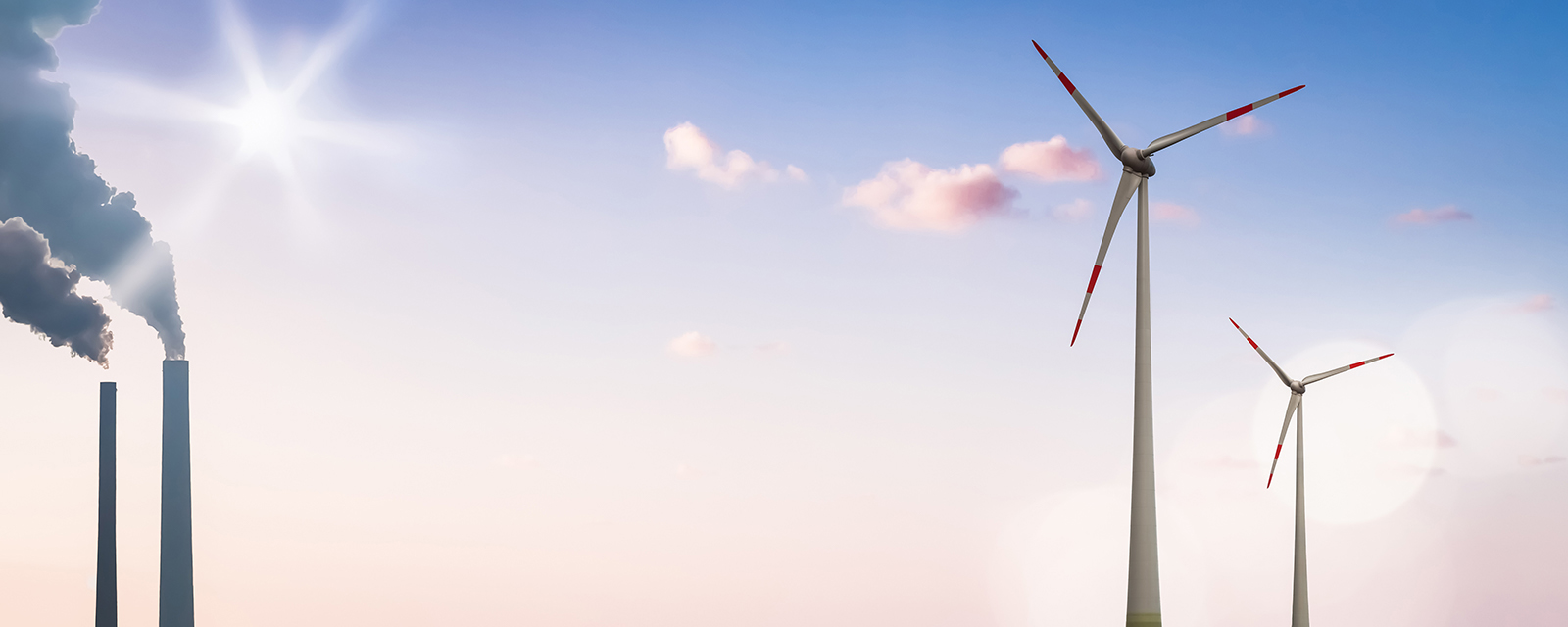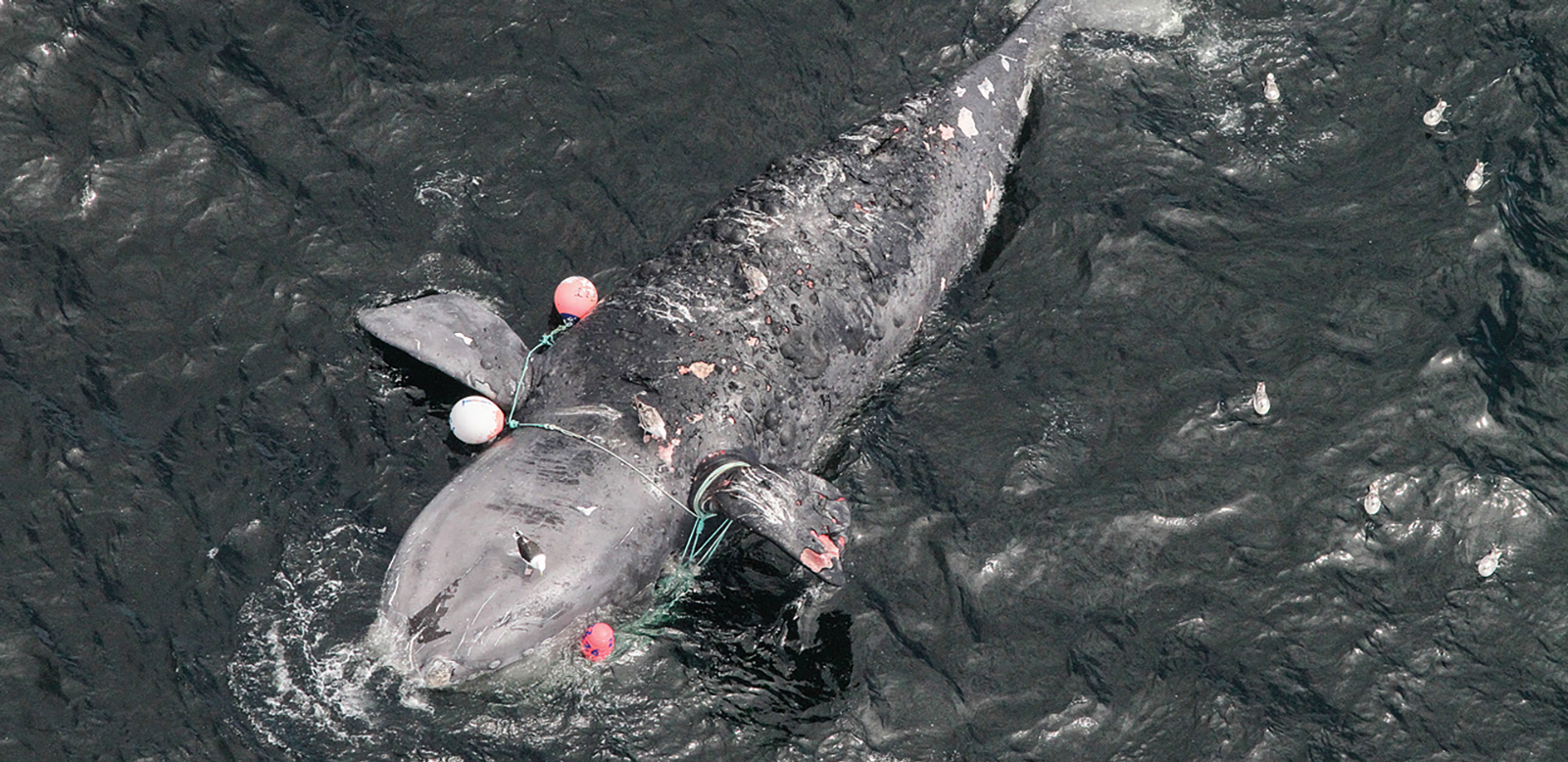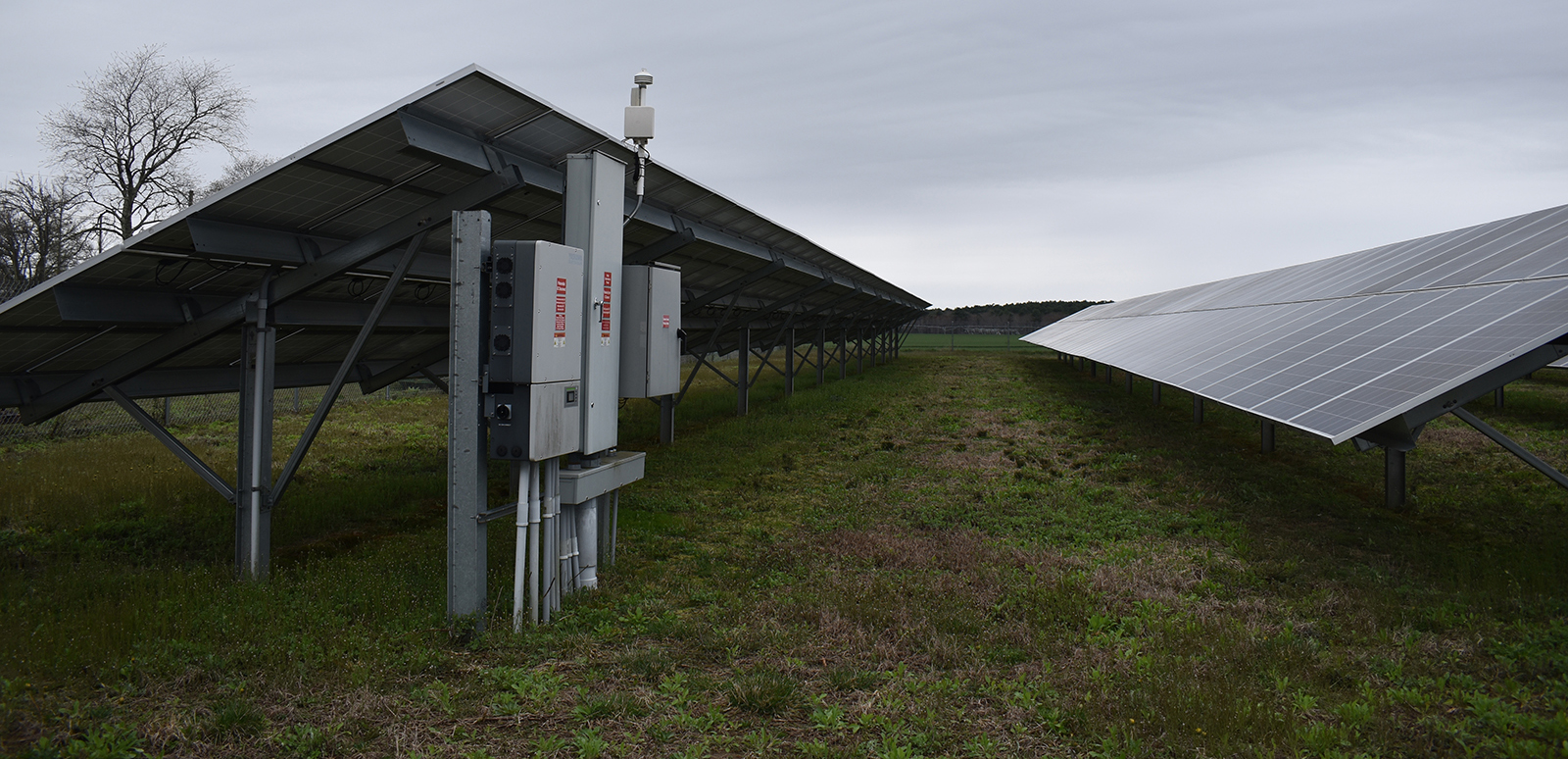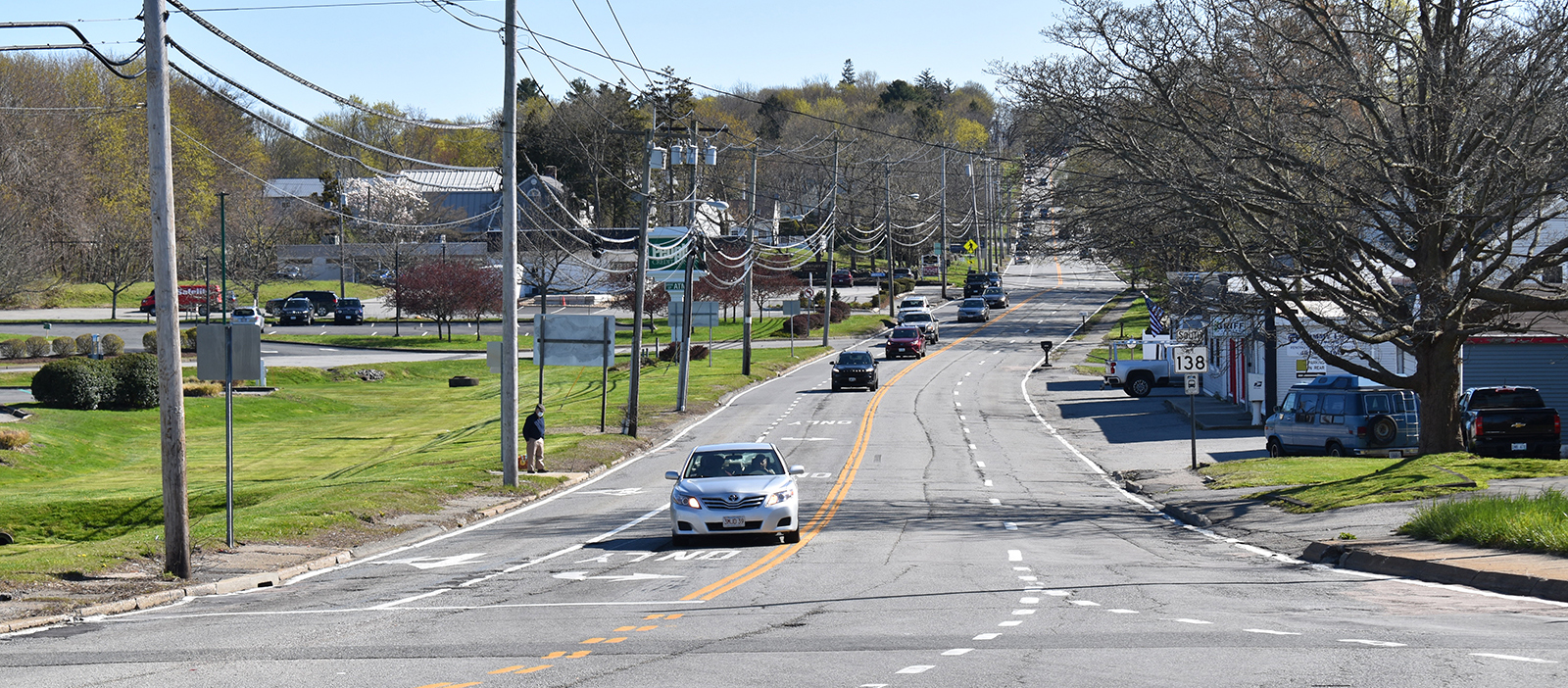Gadflies Swarm Around Whale Carcasses
November 2, 2023
The anti-wind mob chums the waters with red herring. The conspiracy theorists continue to hide behind critically endangered North Atlantic right whales to spin tales about offshore wind. Their faux concern is nauseating.
When it comes to the real threats to the 350 or so North Atlantic right whales left on the planet — entanglements with fishing gear and strikes with ships — the mob’s ranting and raving goes largely silent, and my stomach turns.
These self-proclaimed pro-whale warriors only care about the lives of these majestic marine mammals when they fit into their manufactured hysteria about offshore wind.
Among those spreading the mob’s propaganda are southern New England firebrand Lisa Quattrocki Knight, president of Green Oceans, and Constance Gee, a Westport, Mass., resident and Green Oceans member; Lisa Linowes, executive director of the Industrial Wind Action Group Corp, also known as The WindAction Group; Protect Our Coast New Jersey; and blogger Frank Haggerty, a blowhole of offshore wind misinformation.
Their bluster is either funded by the fossil fuel industry and/or they are wealthy coastal property owners more concerned that their ocean views will be ruined by a different type of energy infrastructure. Either way, the lives of whales, dolphins, birds, and humans living near polluting fossil fuel operations don’t matter.
Green Oceans has filed a civil lawsuit against the Coastal Resources Management Council, claiming the Rhode Island agency violated the state’s Constitution, state regulations, and its own responsibilities when it approved the Revolution Wind project in May.
In September, Knight put on an anti-wind show for a Westport audience. She touched on popular anti-wind talking points, including potential harms of offshore wind to the ocean environment and animals; dangers to fishermen; costs of electricity created by wind power; and the fossil fuel industry origins of some wind developers.
I find the last one especially amusing. She doesn’t trust the industry (no one should) when it comes to offshore wind development, but yet neither her nor her organization protest ocean drilling for fossil fuels, hydraulic fracturing, or tar sands mining.
In fact, Knight and the Green Oceans website barely, if ever, mention the harms associated with the exploration, extraction, and burning of fossil fuels. In February, Green Oceans published a white paper that espoused the idea of converting U.S. coal-fired power plants to natural gas ones as a solution to the climate crisis.
Gee has authored several opinion pieces in local publications about the real and fabricated dangers of offshore wind. In a piece published in early October, she attacks those who question her anti-wind beliefs.
“Those of us shouldering this David and Goliath fight against massive industrialization of the Outer Continental Shelf from Maine to the Carolinas don’t have the energy to counter every deceitful word written about us,” Gee wrote.
Both Linowes, the New Hampshire-based founder of The WindAction Group, and Protect Our Coast New Jersey have been tied to fossil fuel funding.

There are seven turbines spinning off the U.S. coast — five in Rhode Island waters (Block Island Wind Farm) and two off Virginia. They generate 42 megawatts of energy. The frenzied anti-wind crowd blames them — and the various offshore projects in the planning, exploration, and early development stages — for any death of a whale or dolphin reported along the East Coast. To them, offshore wind is to blame for the decline in cod populations, the warming of marine waters, and the dearth of mermaids.
The mob sees evil wind turbines everywhere. They portray them as stationary ocean bogeymen. They like to jam the machines’ alleged evildoing into any story that mentions the sea, renewable energy, or fossil fuels.
For instance, a column I wrote last month about human activity diminishing biodiversity elicited this comment from someone apparently addicted to black gold and ignorant to the myriad problems caused by burning it:
“Yup. Let’s end fossil fuels and fill someone else’s pocketbooks by killing the oceans with windmills and leveling even more forestland for solar farms and Amazon warehouses. Simply ending fossil fuels is not the answer.”
Personally, I don’t know how a structure used to mill grain or pump water would even survive in the ocean, never mind kill it. I do agree, however, that all renewable energy projects, from offshore wind to ground-mounted solar, need to be sited intelligently and our land-use management needs drastic improvement. I’m just glad no forestland has been leveled, mountaintops removed, open space bulldozed, or marine waters damaged by fossil fuel infrastructure.
Ending fossil fuels isn’t the exclusive answer, but it is the highest priority.
I received the following email a day after writing a column about the many human-caused pressures facing the marine environment:
“Frank, do yourself and the RI fishing communities a favor. Please try doing some research outside of the Pew, U of BC, EDF, Ocean Conservancy bubble. Your article is loaded with the anti-fishing propaganda that these corporate style eco-organizations have been spewing for decades. Look up some of you misconceptions about RI fishing in this website by the U. of Washington Ocean Scientists to get a more balanced view of “overfishing” and “bottom clearing dragging gear”, and the “scarcity of large predators” etc., etc. The real threat to the ocean ecosystem is the widespread energy binge. Too many e-gizmos and 1,000 hp EVs and the bogus eco-response of thousands of 900 foot ocean wind turbines between NY Harbor and Nantuckett right on the world’s most productive fish habitat and spawning grounds.”
For the record, not one 900-foot-high wind turbine stands off the East Coast. The five turbines off Block Island are 593 feet tall. The two off Virginia are 600 feet tall. There are plans to install more and bigger turbines off the Atlantic Coast, but “thousands” in an area from New York City to Nantucket, Mass., is an exaggeration.
There are, however, thousands of oil and natural gas platforms in the Gulf of Mexico.

No energy source is benign. From installation to operation, they all come with consequences — environmental, societal, and cultural. We should always be skeptical. There are legitimate concerns about the development of offshore wind — like there are for any power source — such as not infringing upon whale migration corridors that must be discussed, studied, mitigated, and/or avoided. Renewable energy shouldn’t be called clean, but it is significantly cleaner than fossil fuels, especially when it is sited responsibly.
The development of offshore wind, in fact, is the most scrutinized form of renewable energy, which explains why the United States currently only has seven. It’s certainly not ground-mounted solar, especially in Rhode Island.
If the ocean dies, it will be because we can’t stop burning natural gas, propane, oil, and coal.
The mob’s talking points are largely generated by cherry picking data, distorting information, and providing alternative facts. For example, they say wind turbines kill birds. While that is certainly true, they ignore the part about fossil fuel power plants killing many more birds per gigawatt-hour than turbines do.
They conveniently ignore that earlier this year an independent scientific agency that advises the federal government on policies that could impact marine mammals stated there is no evidence linking offshore wind site preparation work with whale deaths along the East Coast. In February, the Marine Mammal Commission became the third federal agency to reject a link between whale deaths and offshore wind. The three members must be part of the Deep State.
Experts at both the University of Rhode Island and Rutgers University have come to the same conclusion.
The mob calls offshore wind “overrated.” Even though offshore wind isn’t being touted as the world’s sole energy panacea, mob members like to note it “will never be a solitary source of energy here or anyplace else.”
Like fossil fuels, renewable energy is a mixture of power sources. Offshore wind is but one.
They claim wind turbines are industrializing the ocean. Freighters, cruise ships, oil and gas platforms, trawlers, fish processing vessels, marine diamond mining, deep-sea mining, megayachts, naval fleets, and nuclear submarines would like a word.
Mob members like to note the amount of indirect sources of carbon dioxide that are produced during the building and installation of offshore wind turbines, such as cement production and the use of machinery powered by fossil fuels. They also like to blame other countries.
A recent email explained all of that to me. It read, in part:
“We stamp our feet, impose sometimes foolhardy regulations on our own industrial producers, with the misguided belief that if we do it, the likes of China, India and other smaller industrial nations, will follow. Well, they haven’t, nor do they intend to. We bastardized clean coal energy which is far cleaner than the EPA and DOE are willing to admit. They are too busy pitching ‘green energy’ like the foolish offshore wind farms which will never reach the energy yield promised by the hucksters selling it. Nor are they green. The processes involved in the manufacture of the infrastructure isn’t green. The transport of the components isn’t green, the assembly process isn’t green.”
Indirect sources of greenhouse gases, however, are also emitted when building fossil fuel power plants, nuclear reactors, offshore rigs, and dams. But, here’s the important part: indirect climate emissions will continue to decrease as more and more cleaner energy is added to the power grid.

If the anti-wind mob really cared about North Atlantic right whales, they would at least be equally concerned about the species’ encounters with large vessels and their entanglements in lobster and crab traps.
They would be outraged that the lives of the whales are being put at risk by ships speeding in designated “slow zones,” according to a report released last month.
Collisions with ships are a leading cause of whale injury and death. North Atlantic right whales are slow, swimming about 6 mph, usually near the water’s surface. They are also dark in color and lack a dorsal fin, making them difficult to spot.
The National Oceanic and Atmospheric Administration, in 2008, implemented a speed rule that all vessels 65 feet or longer must travel at 10 knots (11.5 mph) or slower in specific zones called “seasonal management areas” along the East Coast, to help protect the endangered animals.
These special management areas are drawn around areas at times of the year when right whales are known to be using them for feeding, breeding, giving birth, and migrating. There are 10 slow-speed areas from Massachusetts to Florida.
Unfortunately, vessels, from cargo ships to luxury yachts, have been recorded traveling at more than three times the speed limit, according to the Oceana report.
The Washington, D.C.-based nonprofit analyzed ship speeds from November 2020 to July 2022 in East Coast slow zones and found 84% of the vessels sped through the areas. (NOAA’s interpretation of the data differs.)
Vessel strikes can cause death or injury from blunt-force trauma or propeller cuts. Since 2017, 18 North Atlantic right whale vessel strikes have been recorded in the United States and Canada, according to NOAA, with 12 killed, although marine scientists believe the real number is higher.
Studies have found that limiting boat speeds to 10 knots reduces risk of death by between 80% and 90%.
Entanglements in fishing gear used to catch lobster, snow crab, and bottom-dwelling fish such as halibut, flounder, and cod is the other leading cause of whale deaths and injury.
Fishing gear from the United States and Canada entangles an estimated 100 North Atlantic right whales each year, and about 83% of them have been entangled at least once, according to Oceana.
Ropes and fishing gear have been found wrapped around mouths, fins, tails, and bodies of marine mammals, including right whales. These entanglements make it difficult for the animals to swim, reproduce, and feed. They can cause suffering and death, as lines cut into the animals’ flesh can lead to life-threatening infections.
Yet, when ecoRI News reports on these dangers and others, such as ocean acidification, to marine life, the anti-wind mob doesn’t send emails, post comments, or submit letters to the editor expressing outrage and concern.
There are no pleas for fishing gear to be pulled from local waters or the use of ropeless fishing technology be made mandatory. There are no demands that large vessels slow down or be equipped with technology that monitors the presence of whales in shipping lanes. There are no calls to stop the burning of fossil fuels.
It’s because the anti-wind mob doesn’t really care.
Note: During the November 2020 to July 2021 season, about 64% of the 65-foot and longer vessels in NOAA’s Gulf of Maine voluntary slow speed zones surpassed 10 knots. The following season, about 65% of such vessels sped through. The highest recorded speeds for each season were 37 knots (43 mph) and 39 knots (45 mph). Last year NOAA proposed extending the seasonal management areas speed limit to vessels 35 feet and longer. At speeds higher than 10 knots, ships typically can’t maneuver quickly enough to avoid most whales.
Frank Carini can be reached at [email protected]. His opinions don’t reflect those of ecoRI News.




Well done. Thank you.
And we thought news was to be unbiased. Also a bit more fact checking should be done before you rant. The most striking problem here is that there are now 8, fully built, structures out there, although not producing power. You also need to research and report on the dynamic impacts to the lower trophic levels that NOAA and Deltares scientists are really worried about. For every action there is an equal and opposite reaction… don’t fuel oscillations if you really care!q
Also research the US opinion on global impacts of EMF as summarized by PNNL. So much missing here to have taken the opportunity to write a balanced opinion and calm the waters.
I was going to write how much Green Oceans is filled with lying scum, but Frank took care of that quite well. They should be tarred and feathered and run out of town on a rail.
Thanks for this insightful and comprehensive commentary. I’ll always remember the Brayton coal plant manager (who was managing the transition of the site at that point) commenting that had the whaling captains had their way, we’d still be lighting our streets and homes with whale oil. Wind isn’t perfect, electric cars aren’t a panacea, but if we want to have the stuff we have and the freedom to get where we want to go, there are better solutions than squirting flammable liquids into our motorized carriages, ships and flying machines, and polluting our air, water and soil with emissions from both transportation and industry. But I’m glad you’ve pointed out that masquerading behind concerns about marine mammals, when the monitoring going into the build out arguably is providing even more data for the protection of whales and fisheries, is patently ridiculous.
You have made a compelling and well documented argument. Thank you.
Frank, thank you for calling out these hypocrites clearly and directly in this compelling and well-written article.
If windmills aren’t a positive step for a cleaner environment, clearly oil consumption is so damaging it should be immediately eliminated. Unless these whale-concerned activists are fighting equally hard to reduce oil production and consumption to nothing (or possibly next-to-nothing) their green bonafides are lacking meaningful legitimacy.
I’m with you. They make my stomach turn.
Thanks for pointing these many contradictions out. Green Oceans isn’t about green, and doesn’t care about the oceans (except to the extent they offer nice views). It is very helpful to have this article to point to when they’re out pretending they care about the planet. They don’t.
There are numerous groups from Maine down to North Carolina, comprised of thousands of people, who are protesting the industrialization of our coastal waters—we couldn’t have asked for a better marketing tool than this article. Thank you!
People should be able to have a rational debate concerning issues like this without name calling and personal attacks. Calling people who don’t agree with you a “mob” and “lying scum” and saying they don’t care about the ocean– all that does is reveal the writer’s inability ot unwillingness to repsonsibly consider both sides of a debate. It does not contribute to the dialogue. The saying that the purest form of stupidity is a closed mind may apply here. It is a big deal to populate the ocean, including important fishing grounds, with thousands of large steel towers. Both sides have good arguments. Mindless name calling does not help.
“Observe which side resorts to the most vociferous name-calling and you are likely to have identified the side with the weaker argument and they know it.” Charles R. Anderson
Frank, did you actually do some research before writing this piece or just depend on your arrogance and ignorance to guide you thru? Do you actually know the true definition of Science? Journalism? I’m sure not, probably time to walk along and take the “L” ! OSW Kills and doesn’t work!! Want the Receipts?
Frank, your arrogance and ignorance is appaling on this subject matter!! Obviously you have not done any independent research! Do you even know the definition of Science ? Journalism?
Your article is 3rd-string at best, take the “L” and move on. If you truly think it holds water, debate me!! I’ll bring the receipts for Ya!
It is nothing but greenwashing to call wind turbines renewable energy. They don’t grow on trees. When the greatest cause of death to whales is ship strikes, then the hundreds of extra ships that have enter their waters to sonar map, reconnaissance and supply these projects must be killing whales. Then to say there is no evidence linking offshore wind site preparation work with whale deaths along the East Coast could only be true if no ships were involved. While else would there be Incidental Take Requests.
Do you have the numbers of ships from each industry who have been ignoring the speed limits and killing whales? There were advertisements out for the CTVs stating they were just under the length required fir the slowdown and could speed your crew offshore. This by the company who brought you the most US Jones Act CTVs. So lets dig in and look at the numbers? What are the percentage of increased vessels for each industry, does one contribute more to whale strikes than another? What do you actually know Frank or do you hide under opinion to try to fabricate pseudo news? So based on your own arguments, 80% of the wind industry contractors are harassing whales and this is 80% more than existed in 2012 in New England and this does not include the new high speed unregulated vehicles purpose built for this industry who are doing surveying as well as transfer missions. Keep looking and lets have a truthful conversation and not a rant ok? It is a change, if you want this change lets find common ground and move forward not try to bludgeon each other. JFK said it best, but maybe you dislike him also for going to the moon and not focusing on issues in your back yard, or maybe history does not inform you?
The author loses all credibility by (1) personally attacking the people he opposes and (2) failing to bring evidence in support of his claims. In contrast, Green Oceans maintains a white paper containing a list of the arguments, pro and con, citing evidence. The general public has become smarter – the days of throwing mud and making claims without evidence are over.
Your short sighted, finger pointing rant is not journalism but a full on tantrum. You ignore facts about safety, financial issues and government overreach and you regurgitate the lies people have been sold. Because mammals are dying from fishing gear does not justify further industrialization of our oceans. We should be investing in alternative sources that can be developed and built here in our own country rather than sending billions of tax dollars to other countries.
Thank you for reminding everyone what an angry, opinionated virtue signaling individual sounds like.
The projects are dropping like flies and with good reason. You and your angry rhetoric are squarely on the wrong side of history.
This article reads more as an emotionally based smear campaign then a professional discussion of a complex and very important issue. The author does indeed incorrectly misstate some facts and portray many opinions as facts – I took the time to look them up. It appears that we cannot look to EcoRI for reliable and professional information on an issue where Rhode Island sea life and communities will bear 100% of any and all negative environmental and industrial impact.
The Ethical Journalism Network director, Aidan White, describes the five values which are the foundation of ethical journalism: accuracy; independence; impartiality; humanity; accountability.
Mr. Frank Carini, you’ve failed on every one Of these values in your piece, “Gadflies Swarm Around Whale Carcasses.”
That fact calls into question everything both you and EcoRI publish. Not a good business model in my opinion. It seems to me your ethics and integrity are sorely lacking which is causing you to miss a tremendous opportunity to actually credibly inform your readers about a very real issue.
You wrote “The anti-wind mob chums the waters with red herring.” Fabulous way to alienate and insult your readers. Many hundreds of thousands of us are fighting against offshore wind because, after doing our research unlike you, we have learned that not only will it do nothing for climate change, global warming or sea level rise it will severely damage our coastal way of life. https://chng.it/vKqXMLHNCV Please note there are over half a million signatures on this petition!
OSW will cause all of our electricity rates to quintuple at the very least. It is costing the American ratepayer billions of dollars for something that is less than 25% efficient. It has and will continue to damage our Ocean through geophysical testing and sea floor mapping as well as stirring up hundreds of years worth of debris that will reduce the oxygen levels in the ocean suddenly. We know through acoustic testing https://img1.wsimg.com/blobby/go/935d0456-a4c5-443b-9fca-ffa943ac08d3/downloads/RandAcoustics-SonarVesselNoiseSurvey.pdf?ver=1695512769887 that the decibel levels currently being used to map the sea floor far exceed what was approved by NOAA. Moreover, we know that those decibel levels are severely injuring and or killing cetaceans. Imagine somebody blinded you and while you were in excruciating pain dropped you in the middle of a 16 lane highway and said get home. Of course the whales, dolphins and porpoises are occasionally hit by ships but it’s because they are no longer able to navigate because they are either in pain or in panic. Since 2016 we have lost close to 80 whales most of which are critically endangered. That is a record number of whales yet we have had ship traffic in our shipping lanes for 300 years. The only thing different is that in 2016 they started mapping the sea floor for offshore wind.
Perhaps you are unaware that in order to manufacture, transport, install, maintain, decommission, and transport to a landfill takes An enormous amount of fossil fuels and rare earth minerals. I strongly suggest that before you write anything else so egregiously wrong you take the time to read the environmental impact statements of all of these offshore wind projects on the BOEM website.
As for your ridiculous, erroneous and slanderous comment that opponents of offshore wind are receiving money from fossil fuel companies you couldn’t be more wrong! You owe us all an apology. I am one of the original founders of protect our cost NJ that you carelessly slandered in your story, I can’t call it an article because it really doesn’t meet that definition, at no time did you request any type of financial information while I was president. So you have no way of knowing what are financial situation was. You are simply regurgitating other people’s assumptions. We all know what they say about assumptions! At no time has protect our coast NJ ever taken any money from any fossil fuel company. I can also tell you that to the best of my knowledge and I do work with every other offshore wind group on the East Coast none of the others have taken any money from the fossil fuel industry either. However, you failed to mention that the fossil fuel industry is behind the offshore wind industry. Dong energy, shell oil, BP and others are the owners of the offshore wind projects currently proposed on the East Coast. Talk about misleading your readers! Your idiotic assumption that only rich beachfront homeowners are fighting this says so much about not only the type of person you are but the type of rag you write for. You couldn’t be more wrong about that but that comment is not even worth my time. But I want you to be clear about something, just because you seem to think that we support offshore oil or other drilling doesn’t make it so. Have you asked any of the groups that you are mocking and disingenuously portraying what their stance is on offshore oil? I doubt it because if you had you would not have made such a statement. I suggest you go back to the drawing board and don’t waste your time printing slanderous attacks on people but instead spend a few minutes doing your actual research it’ll make you look so much less stupid.
Suzanne Hornick
Frank, you’re clearly very upset. I doubt anything I, or others say could materially change your view as it’s quite strident. Looking past the personal attacks, inferences, and whataboutism claims you packed into the piece, I’d like to offer the following:
1) The CRMC staff report on Revolution Wind, provides the basis, in part, for why the state’s consistency decision is ripe for legal challenge. RI residents have a vested interest in ensuring the law is followed and that’s what Green Oceans is doing. Is it your intent to deprive people of their right to the court system?
2) Your position that ending fossil fuel use is the highest priority. However, reasonable people can disagree. Have you looked at the ISO-NE’s reports on what it would take to transition the six-state region to all wind, solar and battery – including offshore wind? I encourage you to do so. The environmental and economic costs would be paralyzing.
3) Regarding the ability to mitigate the impacts of offshore wind, have you read the letter NMFS sent BOEM suggesting the only mitigation to the harms is to decommission the turbines? NMFS has also raised concerns that BOEM is placing offshore wind project economics above enforcement of the endangered species act (ESA) and MMPA? If the case, this would be in violation of the law. I do not believe you are advocating for environmental laws to be relaxed in order that offshore wind proceeds. That said, your writing suggests you are accepting at face value what you’ve been told about the projects without examining the details. I encourage you to look deeper. There are real facts that are missing.
Frank, I appreciate how you called them out on their fake greenwashing. You also provided plenty of links to well established studies and research, which would be very easy for the commenters to find on their own. I also think you combined passion and journalism in a very effective way; if we aren’t passionate about the environment, then what’s the point of reporting about it? Nobody wants to talk about how detrimental fishing gear and boat strikes are to the whales because nobody wants to touch the fishing industry. As you mentioned, boat strikes cause the vast majority of whale mortality in this country. We need to enforce our existing regulations about boat speed. I think you did a great job; keep up the good work.
Yikes. That’s quite the rant. What did these people do to you? Wading through your hysteria I think what I’m hearing is whales are already dying from external factors, so why not introduce more external factors to kill more whales, perhaps to extinction. Is that the take-away? That doesn’t sound all that renewable, EcoFrank.
As a commercial fisherman that supports a transition to green energy reading this article just plain made me sad. I’ve always appreciated the level headed reporting from ecoRI news and feel that this article is a stain on the organization. Both sides of this argument have valid points that should be at least considered without resorting to name calling. This one sided rant falls far short of what any reasonable person would call journalism.
Frank, please just stop with the rants. It’s tedious and boring. Until you have something helpful or insightful please just stop. It is simply not at all helpful to this delicate conversation.